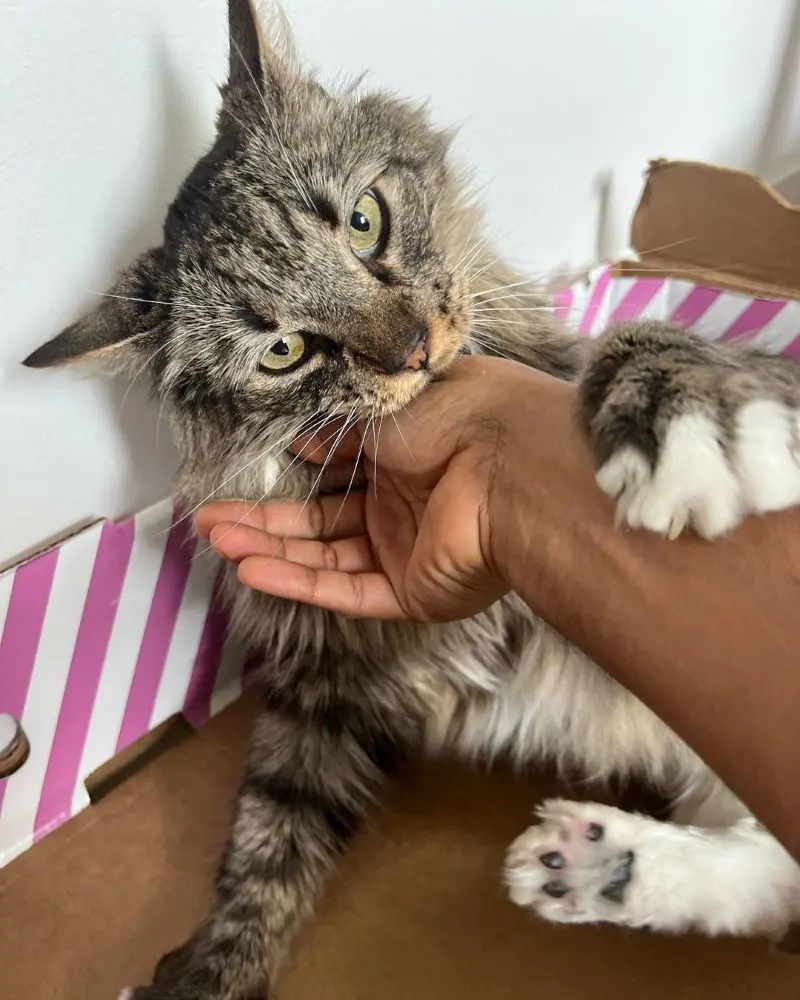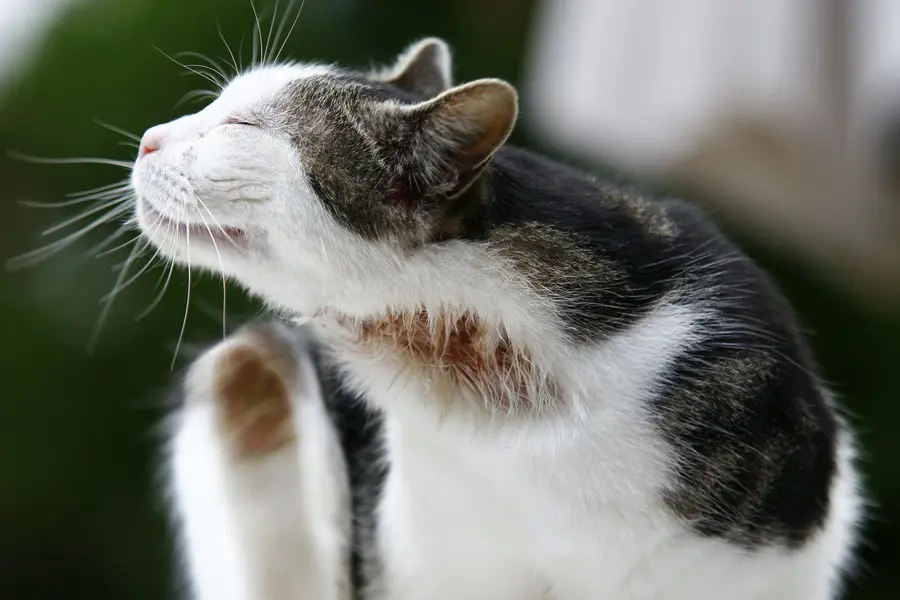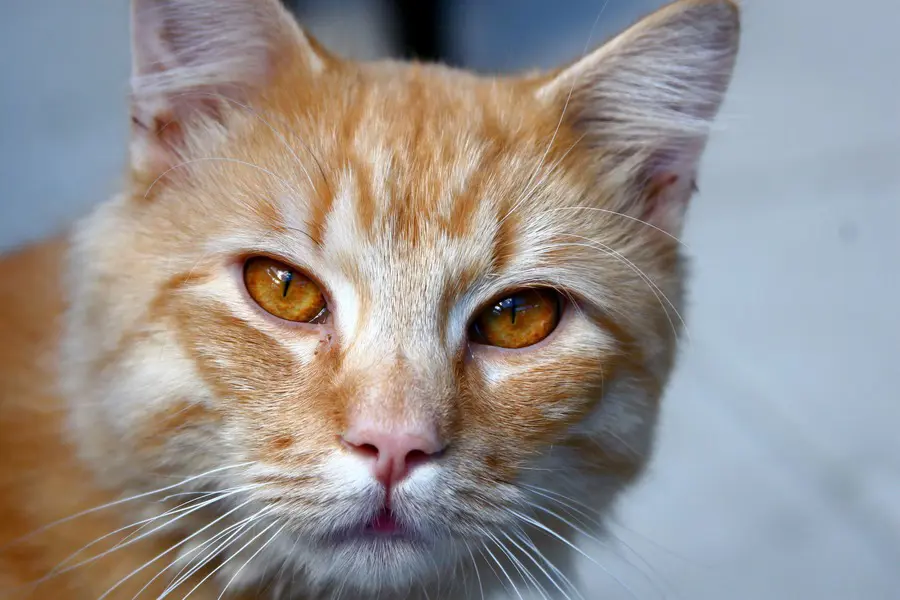How Much Does It Cost To Spay A Cat

Spaying is the foremost responsibility of any responsible cat owner. This procedure not only helps control the cat population but also significantly increases your cat's lifespan by preventing several life-threatening conditions.
The cost of spaying is a small investment in your cat’s future. While it may seem like an expense, the benefits far outweigh the cost, providing your cat with a fulfilling and healthy life. For those concerned about affordability, many communities offer low-cost or even free spaying services through animal shelters, nonprofits, and spay/neuter clinics.
Why Spay A Cat?
Cats are normally spayed when they are around 4 to 6 months old. It is necessary to spay before the cat's first heat. Spaying is considered a mandatory procedure and a crucial part of its care.
These are some of the reasons why you should consider spaying your cat.
1. Population Control
Spaying helps control the cat population. Millions of cats are born each year, and many end up in shelters or on the streets. By spaying, you help reduce the number of unwanted cats.
Furthermore, with fewer unwanted cats, the strain on animal shelters decreases. This can result in a sharp decline in the rate of cat euthanasia.
2. Health Benefits
Studies have shown that neutering can reduce the risk of ovarian and uterine cancers. It also decreases the likelihood of mammary cancer, especially if done before the cat's first heat.
Additionally, spayed cats have a higher chance of avoiding pyometra. This is a potentially fatal infection of the uterus, which spaying completely prevents.
3. Behavioral Improvements
Female cats in heat often roam in search of a mate, which can lead to them getting lost or injured. Spaying reduces this behavior.
Meanwhile, spaying can also control behaviors like excessive yowling, restlessness, and marking territory with urine.
4. Community Benefits
By reducing the number of cats that can reproduce, spaying helps lower the number of stray and feral cats. This leads to fewer public health issues and less wildlife predation.
Stray cats are often competing with each other for limited food sources. When the population declines, each existing cat gets more food and care without using excess energy.
Problems With Unspayed Cats
Unspayed cats are not just at risk of overpopulation; they are also likely to develop behavioral changes. Some common problems associated with unspayed cats include:
- Frequent Heat Cycles: Leads to behavioral changes like excessive vocalization, restlessness, and increased affection or aggression.
- Pyometra: An infection of the uterus that is potentially life-threatening if treatment is provided in time.
- Increased Risk of Mammary Cancer: Unspayed cats have a higher likelihood of developing mammary (breast) cancer, especially with multiple heat cycles.
- Ovarian and Uterine Cancer: Increased risk of developing cancers of the ovaries and uterus in unspayed cats.
- Behavioral Issues: Involves marking territory with urine and roaming behavior in search of a mate. Increases the risk of injury or getting lost.
Cost Of Spay A Cat?
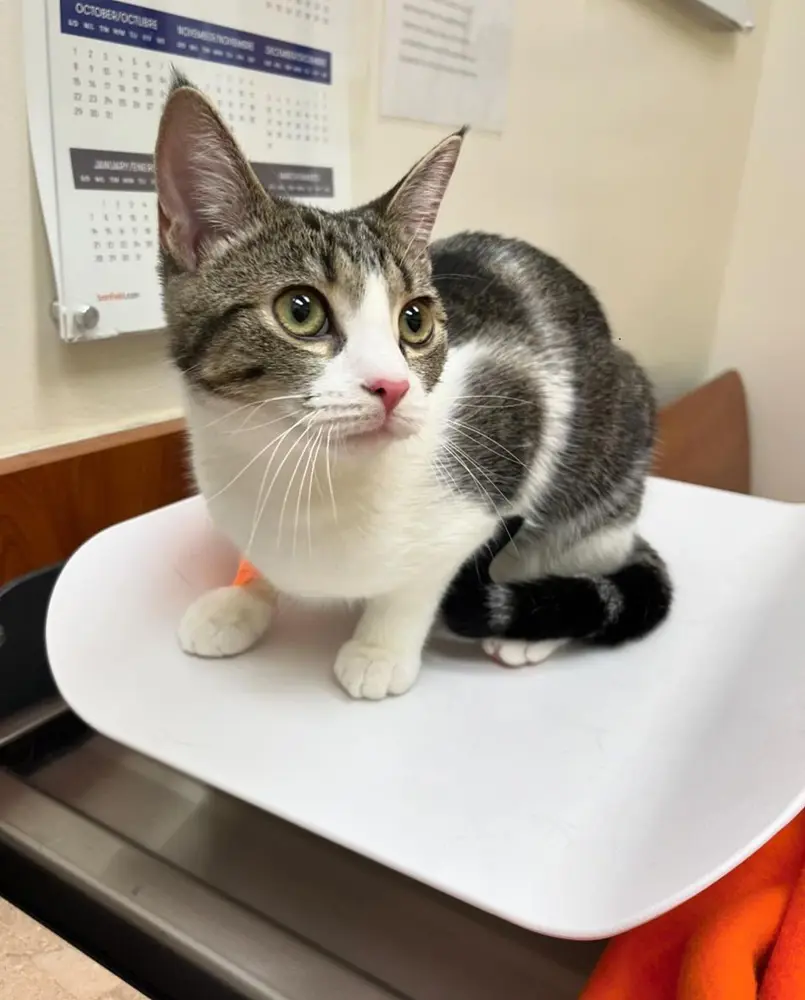
Spaying a cat can cost anywhere between $50 - $500. The huge price difference is due to factors like the reputation of the vet, location, and service quality.
Normally, you can spay your cats at a private vet clinic, low-cost-clinic, animal shelters. The price often depends on where you take your cat for spaying.
Here’s a general breakdown of the price:
- Private Veterinary Clinics: The cost at a private vet typically ranges from $200 to $500. This often includes spay surgery, anesthesia, pain medications, and a follow-up visit.
- Low-Cost Clinics: Many areas have low-cost spay/neuter clinics that offer the procedure for $50 to $150. These clinics often partner with local animal shelters or nonprofit organizations to make the surgery more affordable.
- Animal Shelters or Humane Societies: Some shelters and humane societies offer spaying services at reduced rates, sometimes as low as $50 to $100. This is often done to encourage responsible pet ownership and control the pet population.
- Mobile Clinics: In some regions, mobile spay/neuter clinics provide services for about $50 to $100, depending on subsidies or donations.
Pre-Surgery Cost
Usually, the pre-spaying cost includes several necessary preparations for a safe and successful procedure. One of the primary costs is pre-surgery bloodwork, which typically ranges from $50 to $100. This blood test checks the cat’s overall health, particularly kidney and liver function.
Similarly, before the spaying procedure, certain preparations are necessary. The cat is usually required to fast for 8-12 hours before surgery to reduce the risk of complications during anesthesia. This means withholding food (but not water) the night before the surgery. Additionally, the veterinarian conducts a thorough physical examination to assess the cat's condition.
Post-Op Expenses
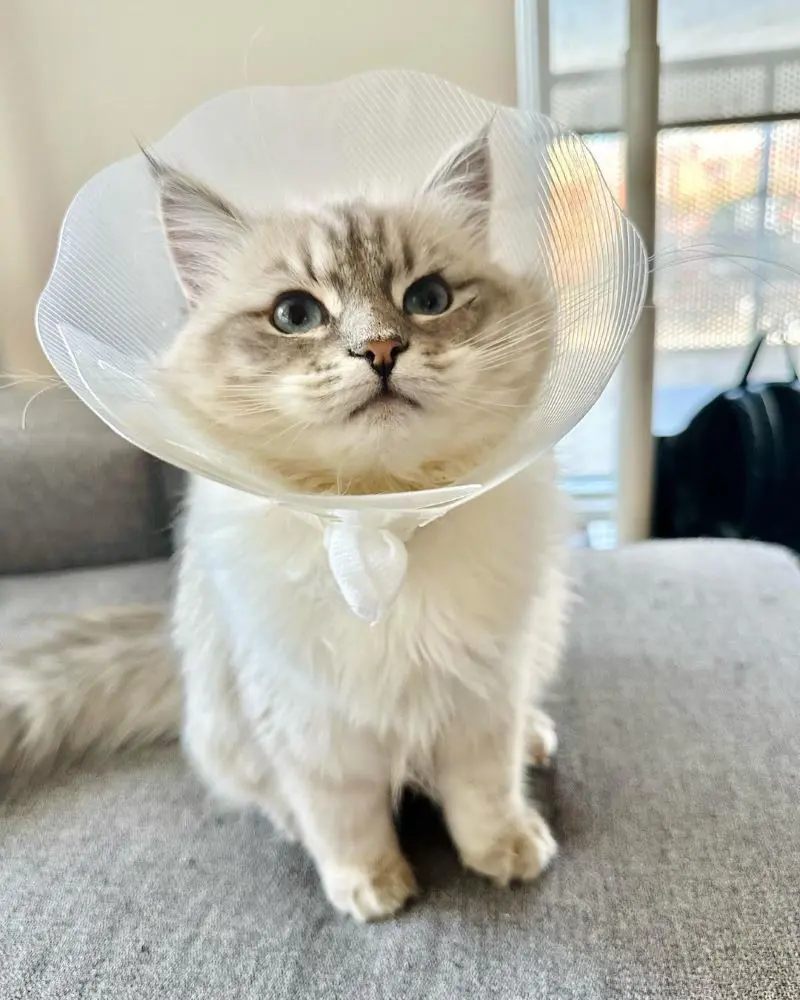
The cost of spaying is not limited to the surgery itself; it also takes into account the expenses incurred after the operation. After spaying a cat, post-operative expenses may include medications, follow-up visits, and special care products. Pain management is a common cost, with prescribed pain relievers typically ranging from $10 to $30. If complications arise, such as infection or incision issues, additional visits to the vet may be necessary. A typical visit will cost anywhere between $50 to $150, depending on the clinic.
Some cats might need an Elizabethan collar (or "cone") to prevent licking the incision site, which usually costs between $10 and $25. Specialized wound care products, like antiseptic sprays or ointments, could add another $10 to $20 to your expenses. Additionally, if your cat requires special food during recovery, such as easily digestible or bland diets, it might cost an extra $10 to $20. Overall, post-op care can vary widely but planning for an additional $50 to $200 is reasonable.
How Much It Cost To Neuter A Cat?
While spaying refers to fixing a female cat, the same procedure is called neutering for male kittens. Neutering is relatively simple, compared to spaying. This makes it a significantly cheaper procedure, a major factor for many pet owners choosing a male cat.
The average price of neutering a cat across various types of clinics includes:
- Private Veterinary Clinics: $100 - $300
- Low-Cost Clinics: $30 - $100
- Animal Shelters or Humane Societies: $30 - $100
- Mobile Clinics: $30-$75
Besides the cost of the actual process, owners may also be expected to pay for additional services like pre-surgery exams, pain medication, and post-operative care. Fortunately, many animal shelters, nonprofits, and spay/neuter programs offer low-cost or even free neutering services to help reduce the stray population and encourage responsible pet ownership.
Why Is Spaying Expensive Than Neutering?
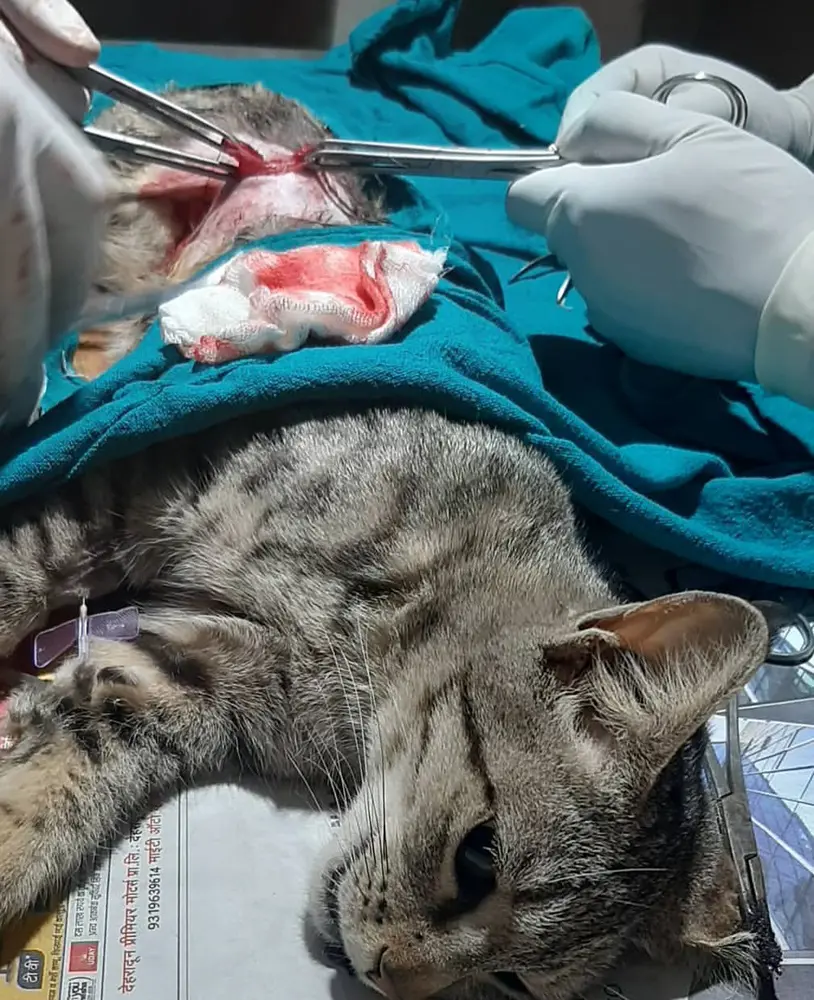
Spaying and neutering are both surgical procedures designed to prevent cats from reproducing, but they differ in complexity. Neutering is a relatively simple procedure where a male cat's testicles are removed through a small incision, usually requiring minimal anesthesia and resulting in a quick recovery.
On the other hand, spaying a female cat is more complex and invasive. During spaying, the veterinarian makes an incision in the abdomen to remove the ovaries and uterus. This surgery requires more extensive anesthesia, a longer surgical time, and a more careful post-operative recovery to prevent complications like infections or internal bleeding.
Because of this complexity, spaying is typically more expensive than neutering. The average cost of neutering a cat ranges from $50 to $150, particularly at low-cost clinics. This makes spaying significantly more costly than neutering.
Does Pet Insurance Cover Spaying Cost?
Spaying is considered a routine or elective procedure rather than a medical necessity. Hence, it is typically not covered by pet insurance. Most standard pet insurance policies focus on covering unexpected medical expenses, such as accidents, illnesses, and emergencies, rather than preventive care.
However, some pet insurance companies offer wellness plans or add-ons that can cover routine care, including spaying or neutering. These wellness plans usually require an additional premium and may cover a portion or all of the spaying cost, along with other preventive services like vaccinations and annual exams.
It's essential to carefully review your pet insurance policy to understand what is included. If spaying coverage is important to you, consider a plan that offers wellness coverage or look into local spay/neuter programs that provide financial assistance.
Are Rescued Cats Spayed?
Most rescued cats are spayed or neutered before being adopted out by shelters and rescue organizations. It is performed to help control the cat population and improve the cat’s health. The cost of spaying or neutering is typically covered by the shelter or rescue group, and it's often included in the adoption fee.
Pre-spaying cats can save a ton of hassles for new pet owners, eliminating the need for them to arrange and pay for the procedure themselves. Some organizations may offer vouchers for spaying if the cat is too young at the time of adoption.
Cat Spaying Cost In Different Places
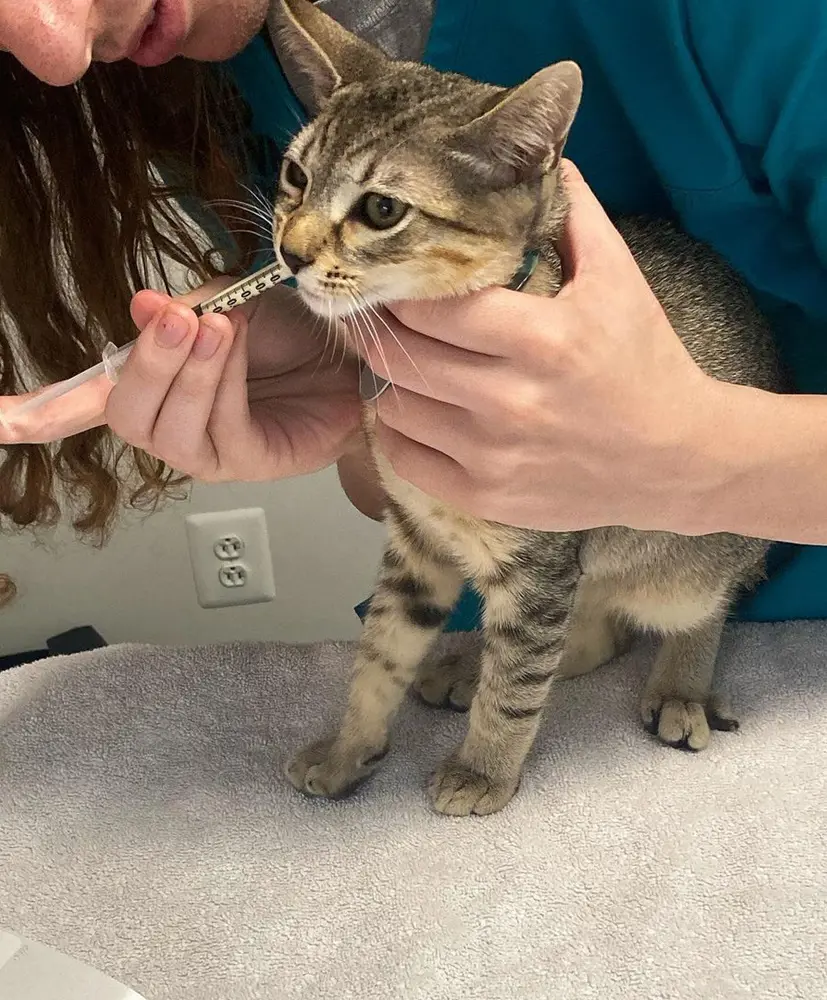
As mentioned above, the price of spaying a cat is not universal and often varies on factors like location and the reputation of the spaying vet. The cost is usually high in big cities and more affordable in suburban regions.
Here's how the spaying a cat near me fluctuates across the states:
1. California
- Los Angeles: $250-$500
- San Diego: $200-$450
- San Francisco: $250-$500
- San Jose: $200-$450
- Sacramento: $200-$400
2. Texas
- Houston: $150-$400
- San Antonio: $150-$350
- Dallas: $200-$400
- Austin: $200-$400
- Fort Worth: $150-$350
3. Florida
- Miami: $150-$350
- Tampa: $150-$300
- Orlando: $150-$350
- Jacksonville: $150-$300
- St. Petersburg: $150-$300
4. New York
- New York City: $250-$500
- Buffalo: $200 - $400
- Rochester: $200 - $400
- Yonkers: $200 - $450
- Syracuse: $200 - $400
5. Pennsylvania
- Philadelphia: $200-$400
- Pittsburgh: $150-$350
- Allentown: $150-$300
- Erie: $150-$300
- Reading: $150-$300
Can You Spay A Cat For Free?
It is possible to spay a cat for free or at a significantly reduced cost through various facilities and programs. Many animal shelters, humane societies, and nonprofit organizations offer free or low-cost spaying services to help control the pet population and reduce the number of homeless animals. These organizations often receive funding from donations, grants, or government programs, allowing them to provide these essential services at little to no cost to pet owners.
Facilities that may offer free or low-cost spaying include local animal shelters, SPCA (Society for the Prevention of Cruelty to Animals) branches, and specialized spay/neuter clinics. Some communities also have mobile spay/neuter units that travel to underserved areas to provide accessible services. Additionally, certain veterinary schools may offer discounted rates as part of their training programs.
These are some of the commonly known non-profits and charity organizations that offer free or low-cost spaying services for cats:
1. ASPCA (American Society for the Prevention of Cruelty to Animals)
- Headquarters: New York City, New York
- Specialty: Animal welfare and rescue, including low-cost spay/neuter services.
2. Best Friends Animal Society
- No. of Branches: 7 Regional Centers
- Headquarters: Kanab, Utah
- Specialty: No-kill advocacy, animal rescue, and spay/neuter initiatives.
3. Humane Society of the United States (HSUS)
- Headquarters: Washington, D.C.
- Specialty: Animal protection, lobbying, and support for spay/neuter programs.
4. SpayUSA
- No. of Branches: 1500+
- Headquarters: Port Washington, New York
- Specialty: Connecting pet owners with low-cost and free spay/neuter services.
5. Alley Cat Allies
- Headquarters: Bethesda, Maryland
- Specialty: Feral cat advocacy, Trap-Neuter-Return (TNR) programs, and education.
6. Friends of Animals
- No. of Branches: 100+
- Headquarters: Darien, Connecticut
- Specialty: Low-cost spay/neuter certificates redeemable at participating vets.
7. FixNation
- Headquarters: Los Angeles, California
- Specialty: Free spay/neuter services for feral cats and low-cost services for pet cats.
8. The Spay-Neuter Assistance Program (SNAP)
- Branches: Multiple clinics in Texas and California
- Headquarters: Houston, Texas
- Specialty: Providing free and low-cost spay/neuter services to low-income families.
9. The Feral Cat Coalition
- Branches: Multiple clinics in Oregon and Washington
- Headquarters: Portland, Oregon
- Specialty: Free spay/neuter services for feral cats and Trap-Neuter-Return (TNR) advocacy.
10. PetSmart Charities
- Headquarters: Phoenix, Arizona
- Specialty: Supports numerous clinics and mobile units across the U.S.
Top Lists


